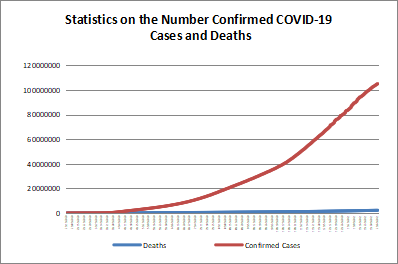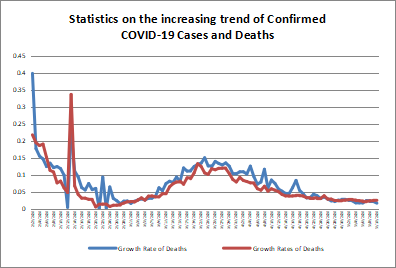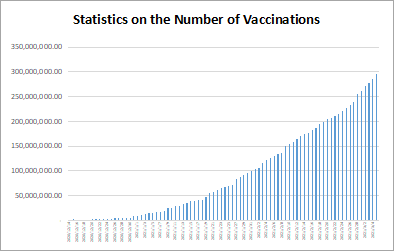FAO Releases Report on Agricultural Markets, Calling for Better Use of Trade for Food Security, Resilience and Environmental Protection
Time:2022/07/05 BJT
1. Key concerns
The Food and Agriculture Organization of the United Nations (FAO) at an event on 28 June 2022 launched The State of Agricultural Commodity Markets 2022 (SOCO 2022), an FAO flagship report. The SOCO 2022 states that a robust and well-integrated global agrifood system can help all countries withstand unprecedented challenges. By analysing global agrifood markets, agrifood systems resilience, economic growth, and environmental outcomes, the SOCO 2022 highlights the importance of international trade in these areas and provides an important reference for national (regional) policy makers.
Firstly, the SOCO 2022 explains the overall trends in global agrifood systems in recent years. It highlights that more countries trade with each other and the global agrifood market is more balanced than in 1995. With the process of globalization losing steam since 2008, regional integration of agrifood trade has become more pronounced, often due to trade agreements, and promoted by factors such as geographic changes.
Secondly, the SOCO 2022 identifies the problems that still exist in today's global agrifood system. It argues that agrifood integration in sub-Saharan Africa is still lagging behind, with high trade costs due to tariffs, insurance, import and export procedures, time delays at borders and the need for compliance with numerous non-tariff measures and standards as key reasons. These reasons can hinder integration and affect the structural transformation of economies.
In this context, the SOCO 2022 suggests possible solutions. According to it, the advent of the African Continental Free Trade Area (AfCFTA) will be important for economic growth and development in the region. Yet, complementary policies must be established in order to prevent the marginalization of agricultural sectors, promote the integration, and improve the competitiveness of entities of the relevant countries in open markets.
Finally, the SOCO 2022 also focuses on the important role of agricultural trading partners and multilateral cooperation in strengthening the resilience of countries (regions) and protecting climate and the environment on a global scale. Globally, agrifood trade can enhance the efficiency of land and water use, but it can also result in negative environmental impacts. Multilateral trade rules and the rising number of regional trade agreements allow for environment-related provisions, which, when legally binding, can help tackle the environmental impacts of trade.
“Efficient trade can promote world food security and better nutrition,”said QU Dongyu, Director-General of the FAO at the event. “Trade can also help global agrifood systems use scarce natural resources, such as land and water, more effectively and sustainably and to diffuse modern technologies worldwide,” he added.
2.Briefing on COVID-19 Pandemic(Issue No.198)
According to WHO statistics, calculated numbers of confirmed COVID-19 cases and deaths reached 542,188,789 and 6,329,275 by 28 June, 2022. The United States, Germany, Australia, Brazil and Italy are the five countries (regions) with the highest number of new confirmed cases in the past seven days, and the United States, Germany, Brazil, Italy and France are the five countries (regions) with the highest number of new deaths in the past seven days.


https://covid19.who.int/
The Global Alliance for Vaccines and Immunisation Board (Gavi’s Board) recently met and issued a resolution in response to the fragile and conflict-ridden international environment and the relentless global fight against the COVID-19. According to the University of Oxford's online research website Our World In Data, the total number of doses of COVID-19 vaccine administered worldwide had reached 12,040,165,512 by 27 June, 2022. On 24 June 2022, Gavi’s Board met to discuss the current complex and uncertain international situation, strategies for coping with current conflicts and humanitarian crises, and strategies for addressing possible future global health challenges. Firstly, they took stock of the disadvantages for countries (regions) in the current complex and fragile international environment. The deteriorating economic situation and the continuing pressure to combat the COVID-19 have cast a heavy shadow over the world. “In an uncertain world, governments of low- and middle-income countries face instability, fragility, budgetary constraints and macroeconomic challenges at the same time as huge public health challenges,” said Prof José Manuel Barroso, Chair of the Gavi’s Board. Then, in the face of increased protracted fragility and humanitarian situations of countries (regions), Gavi’s Board made decisions to provide the world with a policy. First, the Board approved a revision to Gavi’s fragility, emergencies and displaced populations (FED) policy, to strengthen the corresponding specific support. Second, it has decided to provide additional support for vaccines and routine immunisation programmes in countries (regions) most affected by armed conflict. Third, it has increased the targeting of its assistance to middle-income countries. Fourth, Gavi’s Board has decided to extend administration of the COVAX Facility with a view to progressively integrating it in its core programmes. In addition, Gavi’s Board approved an innovation strategy aimed at improving its ability to identify, invest in and scale up potential breakthrough technologies. Finally, to face the health challenges of tomorrow, the Gavi’s Board called for a joint effort with countries (regions) to increase focus and encourage close collaboration with the G7 and G20.

https://ourworldindata.org/covid-vaccinations
In terms of national (regional) responses to the COVID-19 outbreak, recent measures have varied from a gradual relaxation of existing outbreak control measures at various levels to new measures to facilitate vaccination in some countries (regions). In the Americas, the Brazilian Ministry of Health announced on 20 June that it will adjust the coverage of the second booster dose of the COVID-19 vaccine, which is expected to be extended to people over 40 years of age. To prevent and control the COVID-19 outbreak, the country's capital, Brasilia, and largest city, São Paulo, are advising people to wear masks in closed environments. In Europe, at a plenary session on 23 June, members of the EU Parliament passed a motion in support of extending the validity of the Vaccination certificate for EU citizens and third-country nationals for a further 12 months, extending the validity of the certificate until June 2023. In order to facilitate the movement of people, the Norwegian Ministry of Justice and Public Security has announced that Norwegian citizens over the age of sixteen whose passports have not been renewed since the outbreak of COVID-19 can now travel to Greece on their expired passports if the expiry period has not lasted for three years. For Norwegian citizens under the age of sixteen, the new rule does not apply for the time being, for reasons of preventing children from being abducted from the country. According to the European Times, the French government plans to create a border pass upon arrival in France, Corsica and the French overseas territories, making it mandatory for persons over 12 years of age to present a health pass (a negative nucleic acid test result for the COVID-19, a vaccination certificate or a certificate of recovery from COVID-19) when entering or leaving the French territories. In Oceania, the New Zealand Parliament passed a law in late June allowing people considered most at risk of becoming seriously ill from COVID-19 to receive a second dose of the Pfizer vaccine booster without a physician's prescription. In Africa, to effectively combat the outbreak, the South African Health Products Regulatory Authority issued a statement on 24 June stating that Coronavac, an whole inactivated virus COVID-19 vaccine from Sinovac Biotech Ltd. has been conditionally registered for use in South Africa. In Asia, Thai authorities announced that from 1 July, international visitors to Thailand will only be required to show proof that they have been fully vaccinated against COVID-19 or that they have tested negative for COVID-19 nucleic acid. Instead of having to purchase US$10,000 travel health insurance and register for a Thailand Pass.


